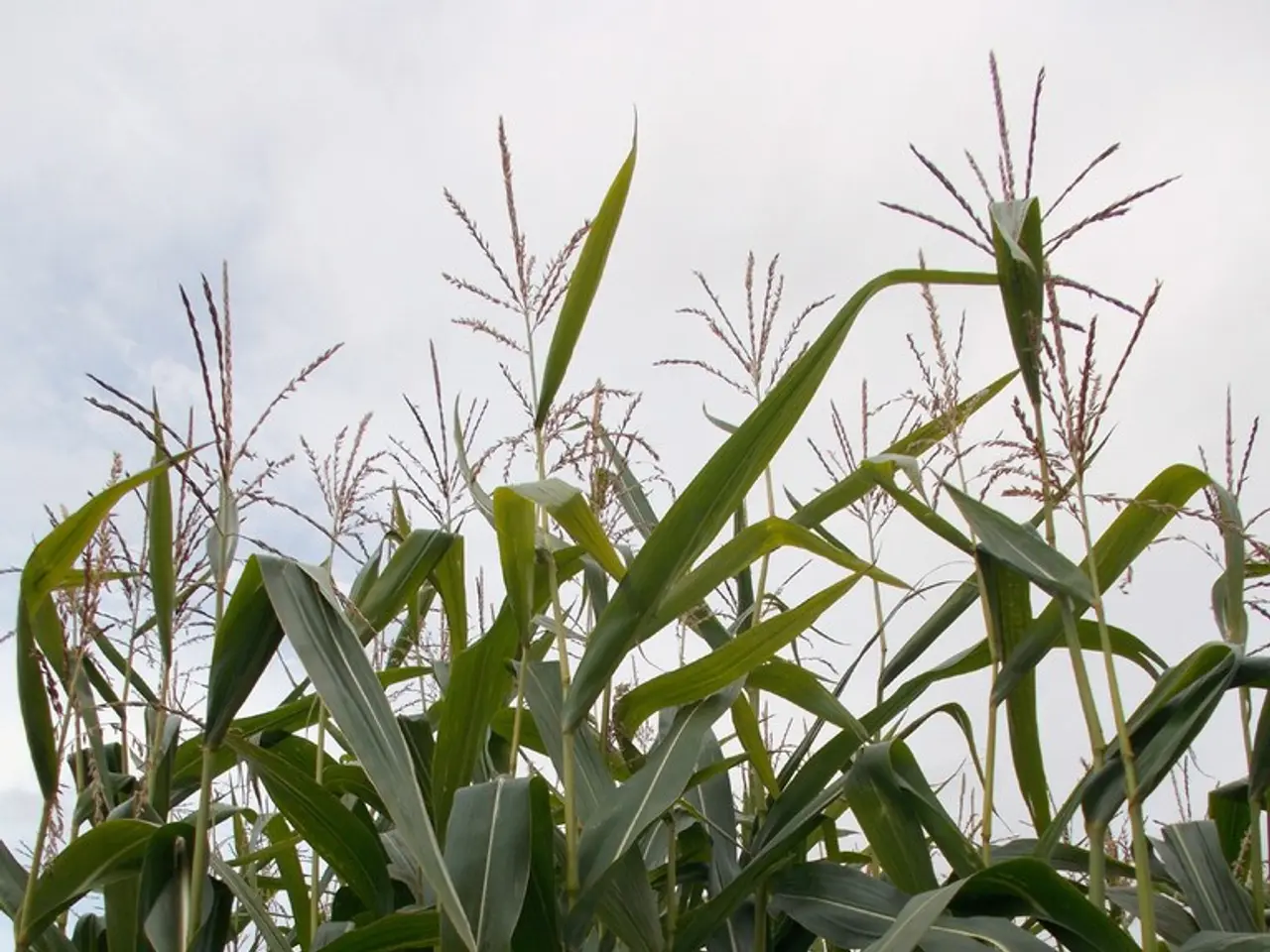Possible destruction of a crucial NASA satellite relied upon by scientists and farmers deliberately initiated
The Orbiting Carbon Observatories (OCO) are two unique federal satellite missions, designed to monitor planet-warming greenhouse gases, and they are currently under threat of termination by the Trump administration. These satellites, which have been operational for several years, provide crucial data on atmospheric carbon dioxide levels and plant health through photosynthesis detection.
The OCO satellites collect data widely used by scientists, oil and gas companies, farmers, and even the U.S. Department of Agriculture for forecasting and tracking crop yield, drought conditions, and more. Their data has revolutionized scientists' understanding of how quickly carbon dioxide is accumulating in the atmosphere, and has revealed important environmental insights, such as the carbon exchange dynamics of the Amazon rainforest and boreal forests.
The satellites' data has also been instrumental in predicting droughts and potential food shortages that could cause civil unrest. Moreover, the missions are cost-effective, requiring approximately $15 million per year to operate, a relatively small amount compared to their scientific and practical benefits.
Despite their proven functionality and a 2023 NASA review recommending mission continuation, the administration appears intent on shutting them down. The standalone satellite would be intentionally deorbited and burn up in the atmosphere, effectively destroying the asset. This move coincides with broader political decisions, such as the EPA's stance that greenhouse gases do not pose a public health threat, suggesting a systematic deprioritization of climate monitoring efforts.
The administration's fiscal year 2026 budget request includes no funding for these missions, with NASA stating they are being terminated "to align with the President's agenda and budget priorities." However, the satellites are still fully operational and more sensitive than any others in existence.
In a potential shift, NASA is considering privatizing some of its science missions, as evidenced by a recent call for universities and companies to potentially take over the cost of maintaining the OCO instrument attached to the International Space Station. Meanwhile, private groups in the U.S. have launched satellites that measure methane, a potent planet-warming gas that is poorly monitored compared to carbon dioxide.
The value of the OCO observations is increasing over time, as they continue to provide critical information. The data collected by the OCO instruments is essential for our understanding of climate change and its impacts on our planet, and its loss would be a significant setback in our efforts to combat global warming.
As the fate of the OCO satellites hangs in the balance, it remains to be seen whether Congress will provide funding for their continuation in the next budget. The loss of these satellites would not only be a blow to the scientific community, but also to farmers, agricultural companies, and national security, as the data they provide plays a crucial role in predicting future political instability caused by crop failures worldwide.
References:
[1] NASA (2020). Orbiting Carbon Observatory-2. Retrieved from https://www.nasa.gov/mission_pages/oco2/main/index.html
[2] NASA (2023). OCO-2 Mission Review. Retrieved from https://www.nasa.gov/content/oco2-mission-review
[3] EPA (2020). Greenhouse Gases. Retrieved from https://www.epa.gov/ghgemissions/overview-greenhouse-gases
[4] USDA (2020). Climate Change and Agriculture. Retrieved from https://www.usda.gov/oce/climate_change/
[5] White House (2025). Budget Proposal for Fiscal Year 2026. Retrieved from https://www.whitehouse.gov/budget/fy2026/
- The Orbiting Carbon Observatories (OCO), designed to monitor greenhouse gases, are currently under threat of termination by the Trump administration.
- These satellites provide crucial data on atmospheric carbon dioxide levels and plant health through photosynthesis detection.
- Science, oil and gas companies, farmers, and the U.S. Department of Agriculture use the OCO data for forecasting and tracking crop yield, drought conditions, and more.
- The OCO data has revolutionized scientists' understanding of how quickly carbon dioxide is accumulating in the atmosphere and has revealed important environmental insights.
- The satellites' data has also been instrumental in predicting droughts and potential food shortages that could cause civil unrest.
- Despite their proven functionality, the administration appears intent on shutting them down, citing budget priorities.
- The administration's fiscal year 2026 budget request includes no funding for these missions, with NASA stating they are being terminated.
- NASA is considering privatizing some of its science missions, such as the potential takeover of the OCO instrument attached to the International Space Station.
- The loss of these satellites would be a significant setback in our efforts to combat global warming and could impact farmers, agricultural companies, and national security.
- As the fate of the OCO satellites hangs in the balance, it remains to be seen whether Congress will provide funding for their continuation in the next budget, considering the general news and politics surrounding climate change and policy-and-legislation.




